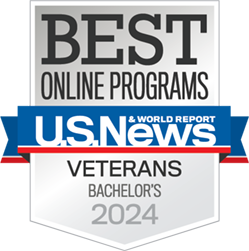
A Dual Degree to Help You Impact Clinical Research
**We are not accepting students to this program at this time, but please refer to our other program offerings.
100% Online
60 Months*
*The total number of credits and duration of the program depend on the number of transferred credits
To learn more about our programs, you can register for our upcoming events.
*Indicates required field
- Read: Privacy Disclaimer Acknowledgment
-
By submitting your contact information, you are providing your express consent authorizing GW and GW's representatives to contact you by email, phone, or text (including the use of an automatic dialing system). Standard text messaging and/or data rates may apply.
If you do not provide your contact information (phone and email), we may not be able to provide you with the information you requested.
If you provided your contact information but no longer wish to receive phone calls, emails, or text (SMS) messages from GW, you will have the option to opt-out. Emails and Text messages will include details for unsubscribing/opting out. To opt out of receiving phone calls from GW, contact us via email at info@hsprograms.gwu.edu or text/ call: 202-792-2819.
By submitting your information via this form, you also confirm that you have read and understood the GW Statement of Privacy Practices.
Note that the consent requested above is not required for enrollment in GW's programs. If you do not consent to providing the information requested on this form, you may contact us via email at info@hsprograms.gwu.edu or text/ call: 202-792-2819.
Impact Change through Clinical Research and Translating Research into Practice
Answer the call for top-skilled clinical research professionals in the growing field of clinical research and find answers for patients through translating research into practice with the George Washington University’s (GW) Dual Degree: Bachelor of Science in Health Sciences (BSHS) Clinical Research Administration/Master of Science in Health Sciences (MSHS) in Clinical and Translational Research. Courses are taught by experienced educators with clinical research experience who are committed to helping you succeed academically and professionally.
With this 87-credit/hour dual health science degree, you’ll build the knowledge and skills to ensure the safety and effectiveness of new drugs, devices, diagnostics, and treatment regimens and learn how to translate clinical research into practice. Graduate with both a bachelor’s and master’s degree as a competitively qualified clinical research professional.
Accreditation and Rankings
- GW is accredited by the Middle States Commission on Higher Education
- #62 Best National University*
- #13 Best Online Bachelor's Programs*
- #7 Best Online Programs for Veterans*
* The U.S. News & World Report – 2024 Rankings



Program Highlights
- Fully online, flexible format
- Innovative curriculum and real-world experience
- Transfer in 45-60 credit hours into the dual degree program.
-
Nine credits of the M.SH.S are completed in the undergraduate portion and charged at the undergraduate per-credit cost
Curriculum: Learn to Address Ethical and Cultural Health Care Considerations
In coursework for the dual BSHS in Clinical Research Administration / MSHS in Clinical and Translational Research, you’ll study clinical research processes, good clinical practices (GCP), health equity, issues in bioethics, clinical and translational research, research collaboration and team science, and more. This dual degree program is designed for motivated, high-performing students who would like to make a difference in advancing scientific discoveries in the health arena and build their team-based and leadership skills.
By completing the BSHS in Clinical Research Administration, you’ll satisfy 1,500 hours of professional experience towards the 3,000 professional experience hour requirement for the following certifications through the Association of Clinical Research Professionals (ACRP):
- CCRA® (Certified Clinical Research Associate)
- CCRC® (Certified Clinical Research Coordinator)
- CPI® (Certified Principal Investigator)
- ACRP-CP® (ACRP Certified Professional)
You will also satisfy one year of the two-year full-time work experience requirement for the Certified Clinical Research Professional (CCRP®) certification through the Society of Clinical Research Associates (SOCRA).
Why Choose a Dual Degree?
By completing nine credits of graduate coursework as part of the BSHS in Clinical Research Administration, you will then be able to complete your MSHS in Clinical and Translational Research in around four and a half semesters rather than six.
You’ll also save money because the nine credit hours of graduate coursework that are part of the program will be charged at the undergraduate tuition rate instead of the graduate tuition rate.
Program Outcomes
Program outcomes for the BSHS in Clinical Research Administration:
- Integrate scientific, medical, regulatory, and commercial requirements to create clinical development plan (CDP) sections that provide for benefit and risk assessments in the development of a new investigational product.
- Analyze strategies to address ethical and cultural considerations for effective and compliant clinical trial conduct in national and international settings.
- Compare clinical, regulatory, and business requirements in the planning and conduct of a clinical trial, including data integrity and documentation.
- Communicate effectively with diverse stakeholders, individually and in group settings, using verbal, written, and electronic modes of communication.
- Explain structural determinants adversely impacting the health of socially disadvantaged groups from diverse perspectives.
Program outcomes for the MSHS in Clinical and Translational Research:
- Develop a broad foundation and understanding of the philosophies and practices of clinical and translational research in human health.
- Lead and collaborate with other scientists, clinicians, investigators on translational research teams.
- Develop strategies for health-care improvement initiatives.
- Evaluate clinical research processes and standards for protecting human subjects.
- Develop translational research proposals in collaboration with professionals from other disciplines.
Career Outlook
When you graduate with your BSHS in Clinical Research Administration / MSHS in Clinical and Translational Research dual degree, you can pursue employment in many clinical research-based positions. You might play a supportive role on a team that designs, manages, evaluates, or conducts clinical trials and studies that investigate the safety and efficacy of drugs, biologics, diagnostic tests, treatments, and devices in human participants. You could also write grant proposals, develop translational research proposals and work with other scientists, clinicians, and investigators on translational research teams.
The average annual salary for a clinical research manager is over $78,000, according to PayScale.4
With this dual degree, you could fill the following roles with these median yearly salaries:
- Clinical Data Coordinator/Manager: $78,920 avg. salary1
- Clinical Research Associate (usually requires previous work experience in clinical research): $73,307 avg. salary2
- Clinical Research Coordinator: $52,319 avg. salary3
- Clinical Research Manager: $83,712 avg. salary4
- Clinical Trial Assistant: $52,894 avg. salary5
Admission Requirements
To apply for the dual BSHS in Clinical Research Administration / MSHS in Clinical and Translational Research, you’ll need the following:
| Completed application and $80 application fee |
| 3.3 GPA or above on a 4.0 scale for all previous college-level coursework |
| Résumé/CV |
| Statement of purpose |
| Two letters of recommendation from a previous instructor or employer |
| Official transcripts from every college and university attended. All non-U.S. transcripts (including those in English) must be evaluated by an accredited foreign credential agency. Please find the list of member organizations here: https://www.naces.org/members. |
|
Prerequisite Coursework: Applicants must have completed 45-60 credits of college-level coursework at a regionally accredited institution of higher education. These completed courses should contain the following General Education courses (students who are missing one or two of these courses may be admitted but must complete them at another college or university and transfer them in to GW before they will be able to graduate from GW).
If you have an associate degree from a participating D.C., Maryland, or Virginia community college, you may be eligible for guaranteed admission to this program. Review the list of participating institutions or complete this form to speak with an Online Admissions Advisor for more details. |
Tuition Details
The dual BSHS in Clinical Research Administration / MSHS in Clinical and Translational Research at GW consists of 87 credit hours. Nine credit hours of graduate coursework that are part of the program will be charged at the undergraduate tuition rate instead of the graduate tuition rate. Please find the cost per credit hour and total estimated program costs here.
Note: Tuition rates are subject to change and additional fees may vary by program.
Meet the Program Directors

GW’s experienced faculty provide you with the rich, practical knowledge and support needed for you to succeed in the program and in your career.
Kathleen Thoma, EdD, CCRP, CPH
- Read Full Bio
-
Dr. Thoma is the Program Director for the BSHS in Clinical Research Administration Program, the Dual Degree Clinical Research Administration Programs, and the Graduate Certificate in Clinical Research Administration Program. She is also the Assistant Program Director for the MSHS in Leadership and Strategy in Regulatory Affairs and Clinical Research Administration Program, and an Assistant Professor in the Department of Clinical Research and Leadership. She has over 20 years of experience in clinical research, health services research, and educational research.
Before coming to the George Washington University School of Medicine and Health Sciences, she was the director of research and a clinical research specialist at the University of Florida Center for HIV/AIDS Research, Education and Service (UF CARES) where she managed many NIH and industry-sponsored clinical trials during her tenure. Her particular expertise involved working with NIH-sponsored trials through the International Maternal Pediatric Adolescent AIDS Clinical Trials (IMPAACT) Network and the Pediatric HIV/AIDS Cohort Study (PHACS) network.
She has also held positions as research project manager for the Pediatric Research in Office Settings (PROS) Network at the American Academy of Pediatrics, director of educational research at Florida State College at Jacksonville, and research project coordinator at the University of Illinois at Chicago’s College of Medicine/School of Public Health.
She earned a doctorate in Educational Leadership with a cognate in Public Health from the University of North Florida. She is a Certified Clinical Research Professional (CCRP) through the Society of Clinical Research Associates (SOCRA) and holds the Certified in Public Health (CPH) credential from the National Board of Public Health Examiners.
Her research interests include patient engagement and centricity in clinical trials, increasing diversity and inclusion in clinical trials, health literacy, health disparities and the social determinants of health, health equity, and distance education in the health sciences.

Samar Nasser, PhD, MPH, PA-C
- Read Full Bio
-
Samar A. Nasser, PhD, MPH, PA-C has dedicated her career to improving patient care in disparate populations for the past two decades, and is specialized in Hypertension and Vascular Disease. Currently, Dr. Nasser is an Associate Professor in the Department of Clinical Research and Leadership and Section Chief of Translational Research. She is also the Academic Program Director for the PhD in Translational Health Sciences, and Program Director of the Graduate Clinical and Translational Research program and Undergraduate Clinical Health Sciences program.
After earning her Bachelor’s of Science degree in Nutrition, Dr. Nasser completed her Master’s of Science in Physician Assistant (PA) Studies from Wayne State University in Detroit, MI. While working full-time as a PA, she advanced her knowledge in clinical research application by earning her Master’s of Public Health in Epidemiology from the University of Michigan. Thereafter, she pursued a doctorate in Physiology from the School of Medicine at Wayne State University as she has a passion to teach others and a deep appreciation for how the human body maintains homeostasis. She loves learning and applying her knowledge on human physiologic functions as they relate to preventative health measures, public health, and the translational research field.
Sources
- Payscale.com (2023). Average clinical data coordinator/manager salary. Retrieved October 10, 2023
- Payscale.com (2023). Average clinical research associate salary. Retrieved October 10, 2023
- Payscale.com (2023). Average clinical research coordinator salary. Retrieved October 10, 2023
- Payscale.com (2023). Average Clinical Research Manager Salary. Retrieved October 10, 2023
- Payscale.com (2023). Average Clinical Trial Assistant Salary. Retrieved October 10, 2023
*The total number of credits and program duration depend on the number of transferred credits.
Curriculum Details
**We are not accepting students to this program at this time, but please refer to our other program offerings.
87 TOTAL CREDITS REQUIRED
In 100% online coursework for the dual BSHS in Clinical Research Administration / MSHS in Clinical and Translational Research, you’ll study clinical research processes and practices, health equity, issues in bioethics, clinical and translational research, the management of clinical trials, and more.
Undergraduate and graduate degrees will be conferred sequentially, with the BSHS awarded upon completion of 120 credits (of which 60 credits must be taken at GW; nine of those credits will be graduate level courses that will be taken during the BSHS portion at the undergraduate tuition rate). The MSHS is awarded following completion of an additional 27 credits (9 courses) of graduate coursework. You can complete this degree program in four to five years, and achieve a substitute for some of the professional experience hours required for several certifications through the Association of Clinical Research Professionals (ACRP) and the Society of Clinical Research Associates (SOCRA).
BSHS Core (17 courses; 51 credits)
- CRA 3101 Basics of Clinical Research (3)
-
The student explores the different phases of drug and device development and introduces basic concepts such as benefit-risk assessment, the different stakeholders, protocol, informed consent, clinical oversight, institutional review board, Good Clinical Practice (GCP), investigational clinical supplies, data management activities, safety reporting, and monitoring.
- CRA 3102 Processes of Clinical Research (3)
-
The student examines the process steps and regulatory requirements governing the development and registration of investigational new products from different stakeholder perspectives as well as the steps and requirements in the conduct of a clinical trial for an investigational new drug or device while ensuring data integrity and human subjects protection.
- CRA 3103 Good Clinical Practices (3)
-
The student analyzes the rationale and goals of Good Clinical Practice (GCP), and applies key principles within the context of case studies.
- CRA 4104 The Business of Clinical Research (3)
-
The student compares and contrasts the business priorities of sponsors, sites and third party vendors, such as contract research organizations (CROs); the student also examines the business considerations in preparing clinical trial budgets including outsourcing and potential trial delays.
- CRA 4107 Introduction to Monitoring Clinical Trials (3)
-
The role of monitoring in clinical research administration to ensure valid, reliable, and accurate clinical data and adherence to good clinical practices by sponsors and study sites.
- CRA 4125 Capstone in Clinical Research Administration (3)
-
In this capstone course, students analyze business, ethical, cultural and practical aspects of clinical trial conduct; explore trends and technologies driving efficiencies in clinical trial performance and demonstrate how ethical and regulatory principles and trial management practices align to ensure quality and compliant clinical research conduct.
- COHM 4110 Strategic Communication for Health Professionals (3)
-
Overview of health communication research, theory, and practice, examining the powerful communication influences on delivering care and health promotion.
- HSCI 2050 Health Equity (3)
-
The cross-cutting nature of the social determinants of health and clinical and biomedical implications in practice and research settings.
- HSCI 2102 Pathophysiology (3)
-
Biomedical and scientific framework for the understanding of human disease mechanisms and biologic processes. Overview of infectious, immunologic, cardiovascular, genetic, respiratory, gastrointestinal, neoplastic, reproductive, renal, hematologic, neurologic, and musculoskeletal diseases.
- HSCI 2105 Current Issues in Bioethics (3)
-
Basic issues, approaches, and requirements of ethically acceptable decision making with patients, including patient confidentiality, conflicts of interest, allocation of scarce resources, occupational risks in health care, and professional responsibility for overall quality of care.
- HSCI 2112W Writing in the Health Sciences (3)
-
Introduction to the health sciences literature Emphasis is on construction, evaluation and organization of written communication of health sciences information.
- HSCI 2117 Introduction to Statistics for Health Science (3)
-
Foundational concepts in descriptive and inferential statistics, including probability, sampling distribution, estimation, correlation, t-Test, simple linear regression, and chi-square. Application of statistical concepts and methods within the health sciences.
- HSCI 3114 Management of Health Science Services (3)
-
Application of management and organizational principles to the delivery of services provided by health sciences disciplines Issues addressed include information systems, leadership, team building, fiscal management, human resources management, quality improvement, and management of conflict and change.
- HSCI 4106 Intro to Epidemiology for Health Sciences (3)
-
An introduction to epidemiological methods and their applications in the prevention and control of illness, community and clinical interventions, and health services.
- HSCI 4112W Research and Writing in Health Sciences (3)
-
Includes a significant engagement in writing as a form of critical inquiry and scholarly expression to satisfy the WID requirement.
- INFR 4101 Introduction to Medical Informatics (3)
-
Medical informatics applications and innovations in health care and the health care system; implications for health care delivery and patient outcomes, including electronic medical records, health system databases, and medical data analysis.
- RAFF 3101 Introduction to Regulatory Affairs (3)
-
Introduction to the field of regulatory affairs to regulations, strategies, and laws that apply to safe and effective product development.
The 3 graduate courses (9 credits) students take in lieu of undergraduate electives are:
- CTS 6261 Foundations in Clinical and Translational Research (3)
-
Overview and analysis of the translational research principles and practice through the application of basic, clinical, community health and health services research concepts. Emphasis is on persuasive communication, conceptually based hypotheses and research methods and the grant application process, including communicating.
- HSCI 6263 Biostatistics for Clinical and Translational Research (3)
-
Basic concepts and methods of biostatistics applied to translational research. Topics include distributions, populations and sample selection, variables, interaction and confounding, hypothesis formulation, correlation, t-tests, ANOVA, regression, and chi.
- HSCI 6264 Epidemiology Translational Research (3)
-
Basic concepts and methods of epidemiology and their application in measuring, studying and improving the health of populations applied to applications for translational research.
MSHS Core (7 courses; 21 credits)
- CTS 6201 Critical Analysis of Clinical Research (3)
-
Students develop the academic skill sets necessary to succeed in this program in the context of exploring scientific, clinical and regulatory concepts required in medicines development. Students demonstrate their critical analysis skills through literature research, analysis of information from various perspectives, and formulating their own opinions in choosing their ‘defendable positions’, rather than stating the “correct answers”.
- CTS 6205 Clinical Investigation (3)
-
Analysis and evaluation of study design strategies and current practices for major therapeutic areas of clinical research (e.g., vaccine development, cardiovascular disease, anti-infectives, CNS, etc.)
- CTS 6246 Clinical and Translational Research Capstone Project (3)
-
This class is designed for early independent investigators in Clinical and Translational Research as a capstone This course will allow students to apply the knowledge gained throughout the program through the completion of an independent, mentored research project (i.e., original research manuscript, review article, etc.)
- CTS 6265 Grantsmanship in Translational Health Science (3)
-
Writing grant proposals to fund clinical research, with an emphasis on translational research proposals. The development and submission of a transdisciplinary research proposal that responds to a Call for Proposals from an external sponsor, such as the National Institutes of Health.
- CTS 6273 Bioinformatics for Genomics (3)
-
The integration of competencies acquired throughout the program. The development and submission of a transdisciplinary research proposal that responds to a Call for Proposals from an external sponsor, such as the National Institutes of Health.
- CTS 6275 Transdisciplinary Research Proposal (3)
-
The integration of competencies acquired throughout the program Foundational and practical principles and their impact on collaborative and team science engagements. Restricted to PhD candidates in translational health sciences; permission of the instructor may be substituted.
- HSCI 6286 Leadership, Professionalism, and Team Science in Clinical and Translational Research (3)
-
The principles and practice of leadership, professionalism, and teamwork as it relates to clinical and translational research focusing on collaboration, communication, and health equity. Prerequisites: Students should have foundational knowledge related to research conducted by a clinical translational research (CTR) team and proficiency in the skills needed to conduct research.
MSHS Electives - Select 2 courses (6 credits)
- RCR 6201 Introduction to Global Regulatory Affairs and Clinical Research (3)
-
Foundation of regulatory affairs and clinical research in therapeutic development in U.S., EU and Japan. Roles in developing products, navigating the regulatory review and approval process, and maintaining products on the market.
- RAFF 6204 Clinical Research for Regulatory Affairs (3)
-
The planning and conduct of clinical trials. Topics include protocol development, study design, post-marketing surveillance, and evaluation and assessment of regulatory submissions. Strategies for achieving clinical development goals. Prerequisite: RCR 6201
- HSCI 6223 Topics in Health Care Leadership (3)
-
Students examine leadership/leadership change theories in the healthcare industry setting, as well as management and communications strategies, and values in a systems framework. Theories and styles of leadership, including organizational management and values, strategic planning, communication strategies, managing change, and negotiating conflict in the context of the health care delivery system.
- HSCI 6240 Issues and Trends in Health Systems (3)
-
Students examine the major themes on healthcare policies, trends, and issues in the major health systems and research enterprise Students apply epidemiologic concepts in the context of translational research.
- HSCI 6241 The Health Care Enterprise (3)
-
An overview of global business principles related to health care systems: the management of patient-centered care delivery, marketing, finance and fiscal management principles, information technology, and quality improvement.
Key Dates
**We are not accepting students to this program at this time, but please refer to our other program offerings.
|
Summer 2025 |
Fall 2024 |
Spring 2025 |
|
| Application Deadline |
March 20, 2025 (Open) |
July 20, 2024 (Closed) |
December 1, 2024 (Closed) |
Admissions Requirements
To apply for the dual BSHS in Clinical Research Administration / MSHS in Clinical and Translational Research (100% online), you’ll need the following:
| Application fee: A non-refundable application fee of $80 is required. The application fee is waived for active-duty U.S. military, current GW students, degree-holding GW alumni, current McNair Program Scholars, and graduates of minority-serving institutions (MSI). |
|
Prerequisite Coursework: Applicants must have completed 45-60 credits of college-level coursework at a regionally accredited institution of higher education with a minimum cumulative GPA of 3.3. Prerequisite courses that should be completed prior to admission include the General Education courses (and credits) listed below (students who are missing one or two of these courses may be admitted but must complete them at another college or university and transfer them in to GW before they will be able to graduate from GW):
|
| 3.3 GPA or above on a 4.0 scale for all previous college-level coursework |
| Résumé/CV |
|
Statement of purpose:
|
|
Two letters of recommendation Letters of recommendation should be from:
Recommender will submit a letter on letterhead with a signature and credentials/contact information via the application portal. |
|
Official transcripts from every college and university attended. All non-U.S. transcripts (including those in English) must be evaluated by an accredited foreign credential agency. Please find the list of member organizations here: https://www.naces.org/members. If you have an associate degree from a participating D.C., Maryland, or Virginia community college, you may be eligible for guaranteed admission to this program. Review the list of participating institutions or complete this form to speak with an online admissions advisor for more details. |
NOTE: This program is authorized, exempt, or not subject to state regulatory compliance and may enroll students from all 50 states, U.S. territories and the District of Columbia.
International Students
International students should check with individual programs regarding eligibility for visa sponsorship. Generally, online and hybrid programs are not eligible for student visa sponsorship from GW. This would include transfer students from any other institution with an existing visa.
Official transcripts from institutions outside the U.S. must be accompanied by an official transcript evaluation from an accredited independent evaluating agency. Please be sure you request a detailed evaluation that includes all course titles, credit hours, grades, U.S. degree equivalency, grade-point averages (GPA), and date of degree conferral. For a list of acceptable foreign credential evaluation services, please visit NACES.
Applicants who are not U.S. citizens are also required to submit official test scores for the Test of English as a Foreign Language (TOEFL) or Pearson’s Test of English (PTE) Academics or the academic International English Language Test System (IELTS). To be considered for admission, there are required scores that you will need to meet. Score requirements may differ by school and program so check the admissions requirements for your program.
Supporting Documents and Official Transcript
Documents and Official Transcripts not submitted online should be mailed to:
Mail: George Washington University
ATTN: Transcript Processing Center
1415 W 22nd St.
Suite 220
Oak Brook, IL 60523
Alternatively, official electronic transcripts can be sent to: transcripts@hsprograms.gwu.edu